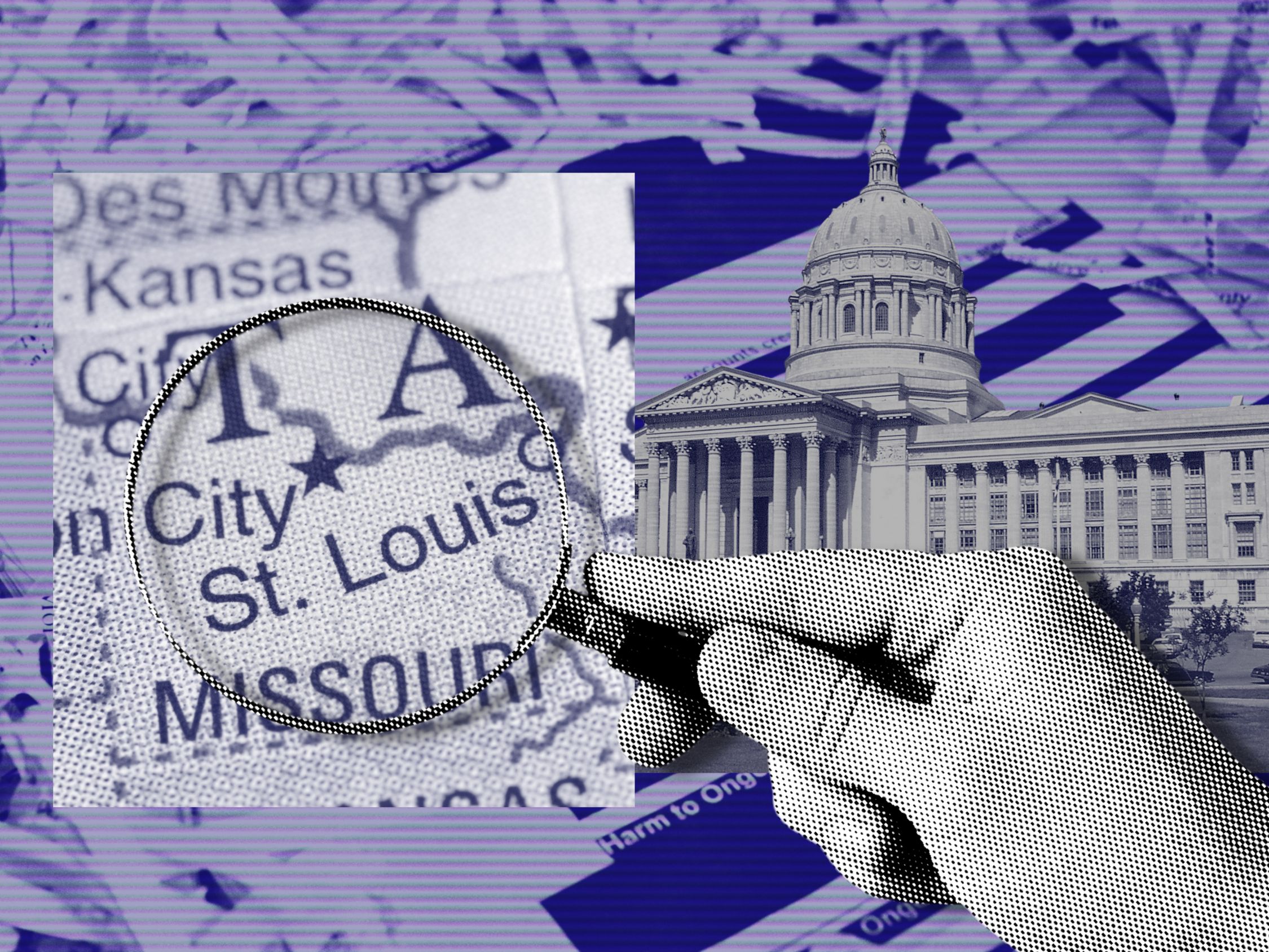The Show Me Nothing State: Missouri Senate Bill Would Curtail Public Access to Many Government Records and Meetings
Missouri lawmakers are poised to follow Arizona in exempting themselves from transparency laws.

A bill advancing in the Missouri Senate would rewrite the state’s Sunshine Law to severely limit what kind of information members of the public can obtain regarding the activities of legislators — allowing lawmakers to block the release of a wide range of previously available records.
The new bill, which passed a key Senate committee last month on a party-line vote, would make several critical changes to Missouri’s open records and transparency laws. One provision would permit lawmakers and their staff to withhold any records that pertain to “legislation or the legislative process,” only requiring the files to be released if they involve a registered lobbyist or if they were shared during a public meeting.
Another change would revise the definition of a “public meeting” in a way that would allow many government bodies to close their doors and deny entry to ordinary citizens or the press. Any meeting of members who are not acting on behalf of an “entire public governmental body” or not voting to advance an item would no longer be considered a “public meeting.” This change would effectively allow one-sided groups of officials to discuss and informally decide official business behind closed doors.
If passed, the proposed legislation would also allow emergency response officials in the executive branch of Missouri’s government to withhold vast amounts of information regarding planning and preparation for emergencies including toxic waste leaks or natural disasters.
The Senate’s new anti-transparency effort comes less than five years after Missouri voters passed a referendum and amended the state constitution to require that legislative records and proceedings be open to the public and subject to the state’s Sunshine Law. That amendment provides that “legislative records shall be public records and subject to generally applicable state laws governing public access to public records, including the Sunshine Law.” Regarding public meetings, the constitution states that “legislative proceedings, including committee proceedings, shall be public meetings subject to generally applicable law governing public access to public meetings, including the Sunshine Law.”
“Just five years ago, Missourians voted overwhelmingly to require transparency from their state legislature,” said Heather Sawyer, executive director of American Oversight. “Now, on a party-line vote, Republican lawmakers are showing complete disdain for the will of the people that they were elected to serve. This partisan bill isn’t just an attack on open and accountable government, it’s an affront to Missouri voters and a dangerous bid for secret lawmaking in the Show Me State.”
Following its passage in the Senate Government Accountability Committee on Feb. 23, the legislation sponsored by Sen. Andrew Koenig is now awaiting a vote by the full Missouri Senate.
If signed into law, the bill would make Missouri the second state this year to severely restrict public access to legislative records. In late January, the Arizona Legislature adopted rule changes that largely exempted lawmakers from that state’s transparency laws. That change came after senior members of the Arizona Senate were publicly embarrassed by the release of thousands of pages of documents that discredited their attempted “audit” of 2020 election results.